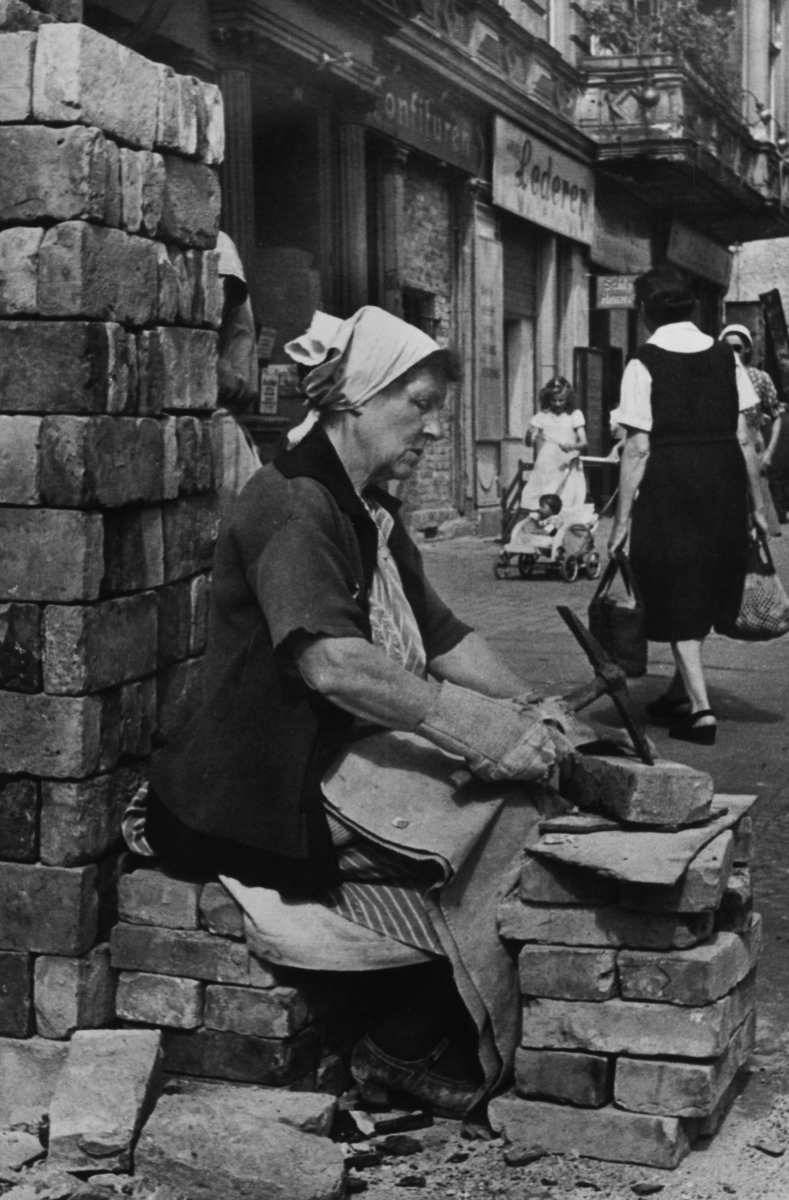Abstract
A Berlin “rubble woman” [Trümmerfrau] chips mortar away from a brick, thereby making it
usable again. The number of soldiers killed in battle, together with the
number of men who were missing or imprisoned, led to a significant
demographic imbalance in the postwar period, when women outnumbered men 2:1.
But the importance of women in everyday life and their role in rebuilding a
devastated society did not translate, at least beyond the local level, into
political influence. The so-called rubble women first achieved belated
recognition for their material and social contributions to the Federal
Republic in 1987, when women born prior to 1921 were awarded a symbolic
payment known as the rubble-women’s pension.
